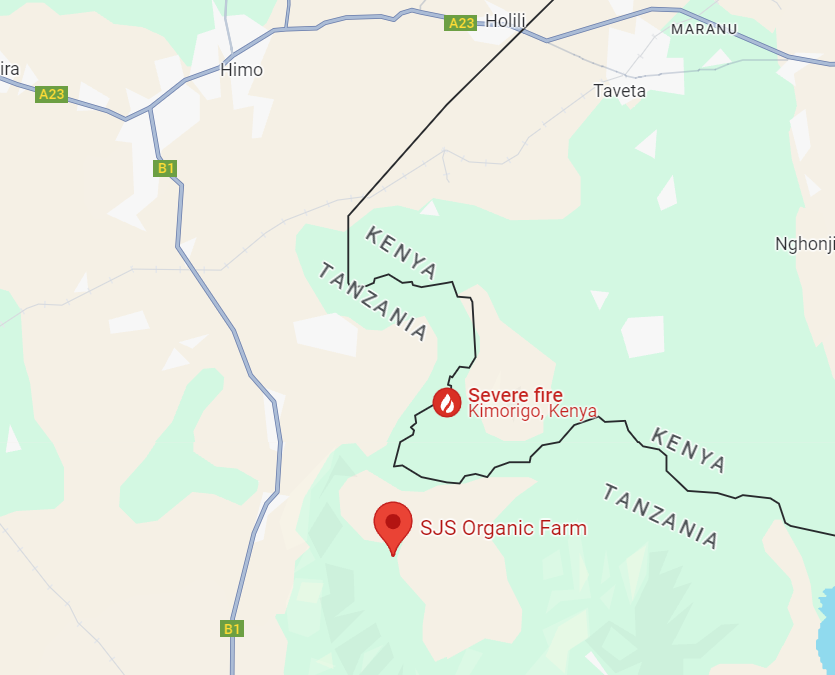Local Service Provider (LSP) – Vijana Kazi
Unlike conventional farming, organic farming lacks established agrovet centers where farmers can easily access consultation services and essential farm inputs. To address this challenge, Local Service Providers (LSPs)—known in Kiswahili as Vijana Kazi—can serve as on-the-ground experts stationed near farmer groups, providing both advisory support and organic farm inputs. An LSP can undergo specialized training at SJS Organic Farm to learn how to produce high-quality organic farm inputs, such as biofertilizers, biopesticides, and soil enhancers. These trained service providers can then supply farmers with these inputs while offering hands-on guidance on their proper application. This model also creates a sustainable income cycle. For example, an LSP producing Jeevamrutha (a natural biofertilizer) can purchase cow dung and urine from farmers, process them into Jeevamrutha, and then sell the finished product back to farmers while providing expert consultation on its benefits and usage. This approach reduces input costs for farmers, promotes self-reliance, and stimulates the local economy. By establishing LSPs, we empower local entrepreneurs, improve organic farming efficiency, and foster a self-sustaining agricultural ecosystem that benefits both farmers and service providers.
Join Us in Building a Sustainable Future
For more information or to participate in our LSP (Vijana Kazi) training seminars, please contact SJS Organic Farm Management. Together, we can empower communities, promote ecological agriculture, and create lasting change in organic farming!
Advantages of the Local Service Provider (LSP) – Vijana Kazi Model
1. Bridging the Knowledge Gap – LSPs provide direct access to expert
consultation on organic farming, filling the void left by the absence of agrovets.
2. Local Availability of Organic Inputs – Farmers can access essential organic
fertilizers, biopesticides, and soil enhancers without relying on costly or
unavailable external sources.
3. Economic Empowerment – LSPs create income-generating opportunities for
young people and entrepreneurs by training them to produce and sell organic
inputs while offering consultancy services.
4. Cost Reduction for Farmers – Instead of purchasing expensive synthetic
inputs, farmers can access locally produced, high-quality, and affordable
organic alternatives through LSPs.
5. Sustainable Farming Practices – By promoting eco-friendly and regenerative
agriculture, LSPs help reduce chemical dependency, improve soil fertility, and
enhance biodiversity.
6. Strengthening Local Economies – The cycle of buying raw materials from
farmers (e.g., cow dung, urine) and selling back value-added organic inputs
keeps money circulating within the community.
7. Personalized Farmer Support – LSPs work closely with farmers, offering
tailored guidance on best practices, problem-solving, and farm
management strategies.
8. Scalability and Replication – This model can be easily adopted in different
regions, creating a network of trained service providers and expanding the
reach of sustainable agriculture.
9. Enhanced Farm Productivity – By improving soil health and pest
management, LSPs help farmers achieve higher yields, better crop quality,
and increased profitability.
10. Community- - Led Agricultural Innovation – Encouraging farmer-to-farmer
learning and local innovations strengthens the organic movement and fosters
long-term agricultural resilience.
Ensuring Sustainability in Organic Farming Projects
Many NGOs and organizations struggle to ensure project continuity after implementation. To address this, SJS Organic Farm has developed the LSP Knowledge Product, a sustainable model that empowers organizations involved in organic farming to establish long-term, self-sustaining agricultural solutions. By training local service providers, this initiative ensures that farmers continue receiving expert guidance, quality organic inputs, and sustainable farming support even after NGO projects conclude.







